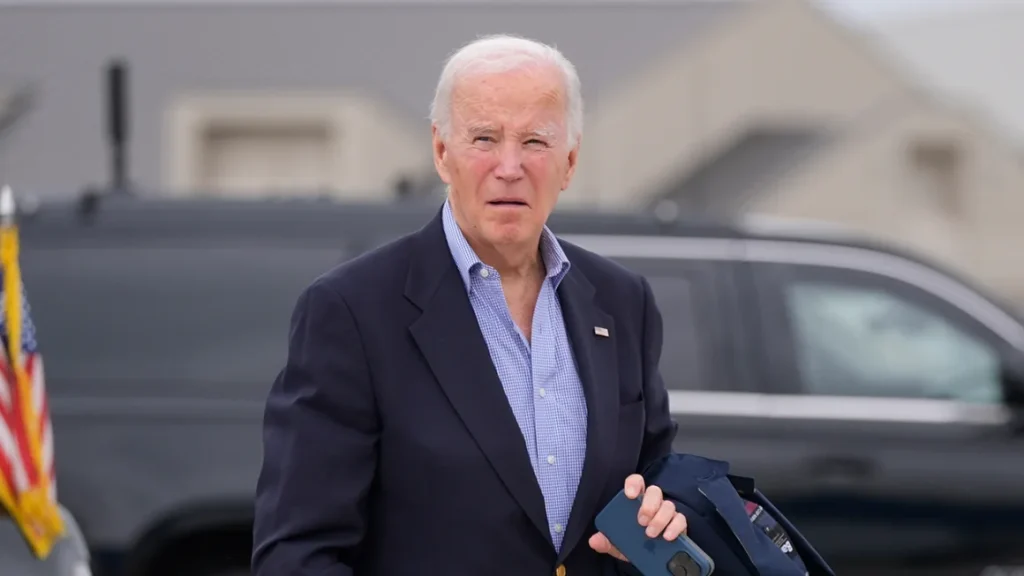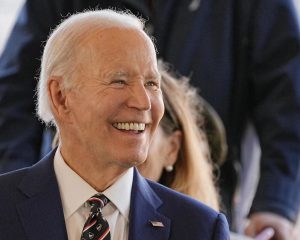Biden administration fears Iranian attack and is working with Israel on defenses, US official says

The Biden administration is worried that an attack from Iran is being planned in the wake of Israel’s killing of Hezbollah leader Hassan Nasrallah and is working with Israel on defenses, a US official said Sunday night.
Joint defenses are being prepared to ward off an attack with changes in US military posture, the official added.
The Biden administration spearheaded a multi-national defense of Israel in mid-April when Iran launched over 300 drones and missiles at Israel in response to the Israeli bombing of senior Iranian Revolutionary Guard officers in Syria.
The US official declined to say what kind of attack is expected from Iran or specify the moves the US military is making.
Fears of a broader regional war in the Middle East have spiked in recent weeks as Israel intensifies its attacks on Hezbollah in Lebanon and the Iran-backed group vows to continue its fight, even as a growing number of its top commander have been killed.
The Pentagon said in a statement Sunday night that “should Iran, its partners, or its proxies use this moment to target American personnel or interests in the region, the United States will take every necessary measure to defend our people.”
Defense Department Spokesman Gen. Patrick Ryder noted “a significant amount of capability in the region,” including the USS Abrahm Lincoln Carrier Strike Group.
Nasrallah was killed in a massive Israeli bombing in southern Beirut on Friday. He led the most powerful of Iran’s Middle East proxies for decades and his death is a potentially crippling setback for Hezbollah as well as a major blow to Iran’s control in the region.
Biden administration officials are also defending their decision to announce the “breakthrough” of a ceasefire proposal last week between Israel and Hezbollah that quickly turned into an embarrassment for the administration when Israeli Prime Minister Benjamin Netanyahu made clear Israeli forces would instead continue to pound the Lebanese militant group.
US officials argue that Israel changed its mind Wednesday night after the proposal – which was signed onto by 11 other allies – was announced. Israel decided they had an opportunity to target Nasrallah, a US official said.
The US official told CNN the US-led statement issued Wednesday had been greenlit by Israel after working on it together for several days. On a hastily-arranged call that night, senior Biden administration officials told reporters with confidence: “the ceasefire will be for 21 days” across the Lebanon-Israel border.
They believed it would go into effect quickly so that diplomatic efforts could take over to lead to a more permanent truce.
But hours later Netanyahu said Israel “will continue to hit Hezbollah with all our might.”
Israeli officials tried to explain what happened as an “honest misunderstanding.”
They say they thought what the US, France and other countries were proposing “was the start of a process that could ultimately lead to a ceasefire.”
But “Americans thought it was the end of the process and the start of a ceasefire,” a senior Israeli official told CNN.
What gave American officials confidence was that they had been dealing directly with one of Netanyahu’s closest aides, Ron Dermer. He and US National Security Advisor Jake Sullivan had launched the discussions two days prior, on Monday.
The US official claimed on Sunday that the administration retreated from pushing last week’s ceasefire plan once they learned Israel may try to take out Nasrallah. But the White House insists the efforts to reach a diplomatic solution in order to get tens of thousands of Lebanese and Israeli civilians back to their homes are still alive.
“I think what we would agree on is that there needs to be an effort to de-escalate here,” the White House’s national security spokesman John Kirby told CNN on Sunday.
“We believe and continue to believe that an all-out war with Hezbollah, certainly with Iran, is not the way to do that. If you want to get those folks back home safely and sustainably, we believe that a diplomatic path is the right path,” he added.


